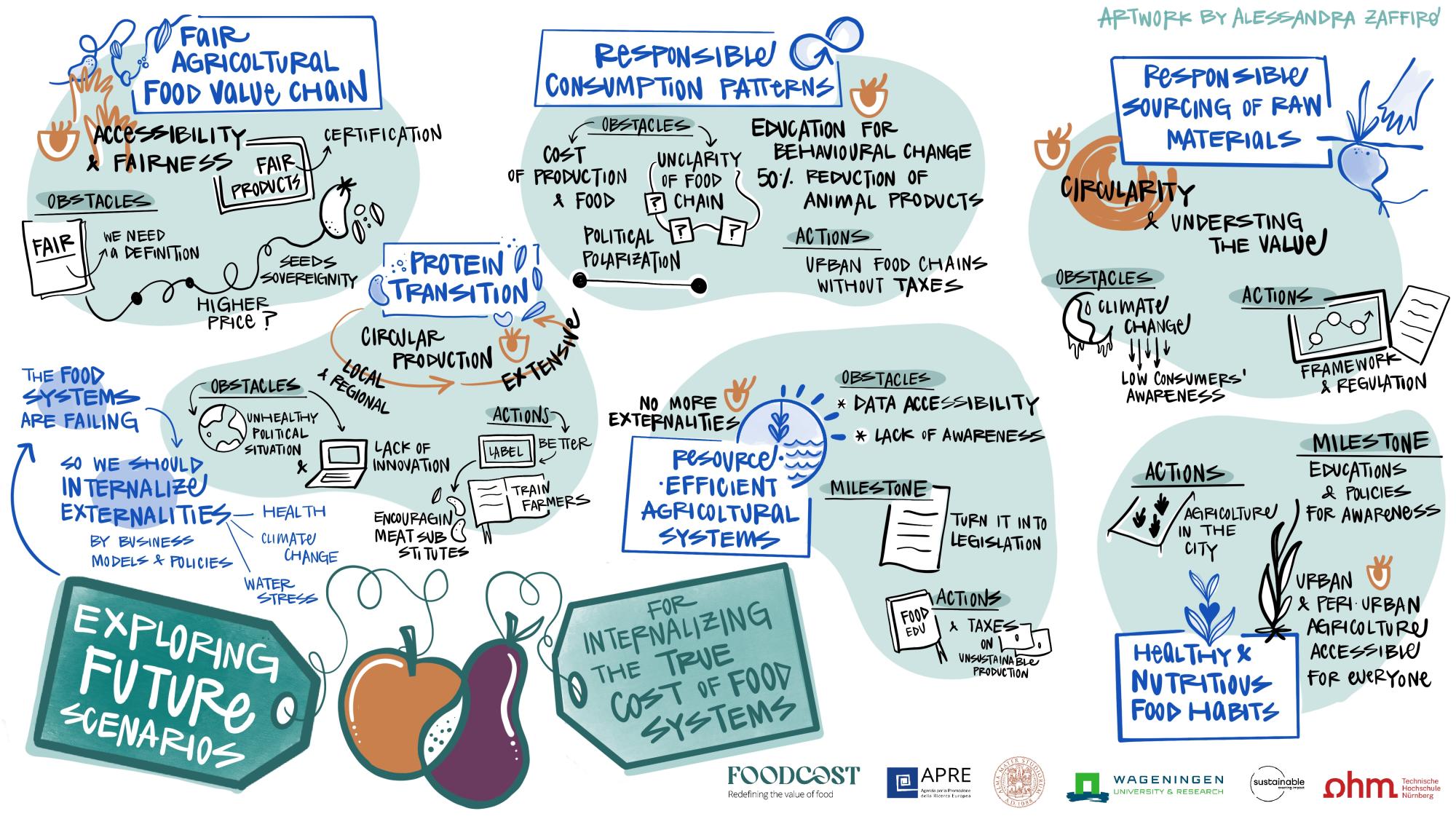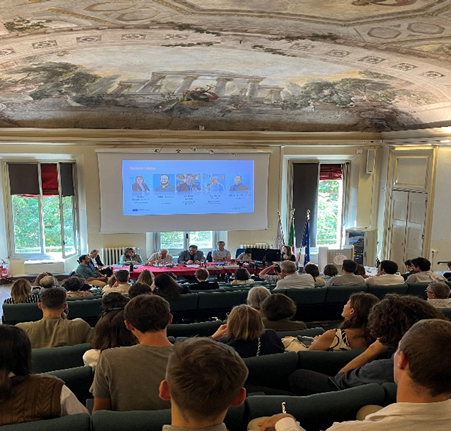The True Cost of Food: Unveiling and Internalizing Environmental and Social Costs
Adalgisa Martinelli participated at the HORIZON project FOODCoST workshop hosted at University of Bologna

The True Cost of Food: Unveiling and Internalizing Environmental and Social Costs
The FOODCoST project, initiated under the Horizon program from 2022 to 2024, is an innovative project aiming at supporting sustainable food transitions through True Cost Accounting (TCA). This approach strives to account for the societal impacts of food production and consumption, thus providing a more transparent understanding of the actual costs associated with food.
The role of True Cost Accounting (TCA)
 True Cost Accounting is crucial! It offers a comprehensive view of the hidden costs of food production, including environmental degradation, social inequities, and economic disparities. This method seeks to reveal the true value of food by considering factors beyond the immediate price paid by consumers.
True Cost Accounting is crucial! It offers a comprehensive view of the hidden costs of food production, including environmental degradation, social inequities, and economic disparities. This method seeks to reveal the true value of food by considering factors beyond the immediate price paid by consumers.
As highlighted by Michieal van Galen, the project coordinator, the ultimate goal is to support sustainable food transitions by making these hidden costs visible, thereby fostering more informed consumer choices and policy decisions
Andrea Segré, professor of food policy and circular economy at University of Bologna (UNIBO), emphasized the significance of this initiative. During the opening speech of the workshop, the Professor referred to the 2021 UN Food Systems Summit, which launched several coalitions, including the True Value of Food Initiative, thus underling the importance of the TCA method. This initiative, led by the FAO, aims to address food waste and promote food education. Segré pointed out that understanding the true value of food is essential for raising awareness and reducing food waste. He also stresses the need for economic fairness, ensuring that low-income populations can access sustainably produced food.
Impact on the Supply Chain
The implementation of TCA will have profound implications across the food supply chain, affecting both consumers and producers. Luisa Crisigiovanni from Altroconsumo, a member of the consumer policy advisory group of the European Commission, discussed the broader impact of TCA. She noted that while consumers are increasingly willing to change their behavior, effective implementation of TCA requires more than just labeling. It necessitates creating an environment where sustainable choices are incentivized and easy to make. Along this line, Daniele Rossi from COPA COGECA and Confagricoltura echoed these sentiments, emphasizing the importance of collaboration among different ranges of stakeholders to ensure the successful adoption of TCA. This collaborative approach is vital for achieving the project's objectives of fairness and sustainability in food systems.
Communicating the True Cost of Food
A key challenge in implementing TCA is effectively communicating the true costs to consumers. Giorgio Alberani from FRUTTAGEL and Nick Jacobs from IPES-Food highlighted the importance of transparency in this process. They argue that policymakers and consumers need to be aware of the hidden costs associated with food production. Indeed, the TCA provides a more advanced method than traditional cost-benefit analysis, offering a clearer picture of the broader impacts of food systems.
FOODCoST – WORKSHOP at University of Bologna
As part of a series of events organized within the FOODCoST project, I had the possibility to attend the 4° Mobilization and Mutual Learning workshop which took place at Palazzo Hercolani in Bologna on June 13, 2024. The workshop featured several keynote speakers from various organizations, including Altroconsumo, COPA COGECA, Confagricoltura, IPES, and Zero Waste. After a general discussion on the themes of the workshop, all the participants had the possibility to choose among two parallel sessions. I attended the parallel session on ‘Future scenarios for internalizing the true cost of food systems’ which was very inspiring. The structure of the focus groups facilitated the discussion and the interdisciplinarity of the participants enriched the debate and the putative solutions proposed. The ultimate scope was to unpack how True Cost Accounting seeks to provide a more transparent and comprehensive understanding of the true value of food, thereby promoting informed consumer choices and sustainable practices across the supply chain.
As the policy landscape continues to evolve, it is important to push forward innovative ideas as the TCA to impact policies, consumer behavior, and food production practices which will be crucial in shaping the future of sustainable food systems.
A final thank you to APRE – Agenzia per la promozione della Ricerca Europea for inviting me to this workshop. As part of my PhD journey which focuses on the narratives of food sovereignty at the European level, I deem essential to exchange inputs and perspectives with peers from other subjects and fields.
